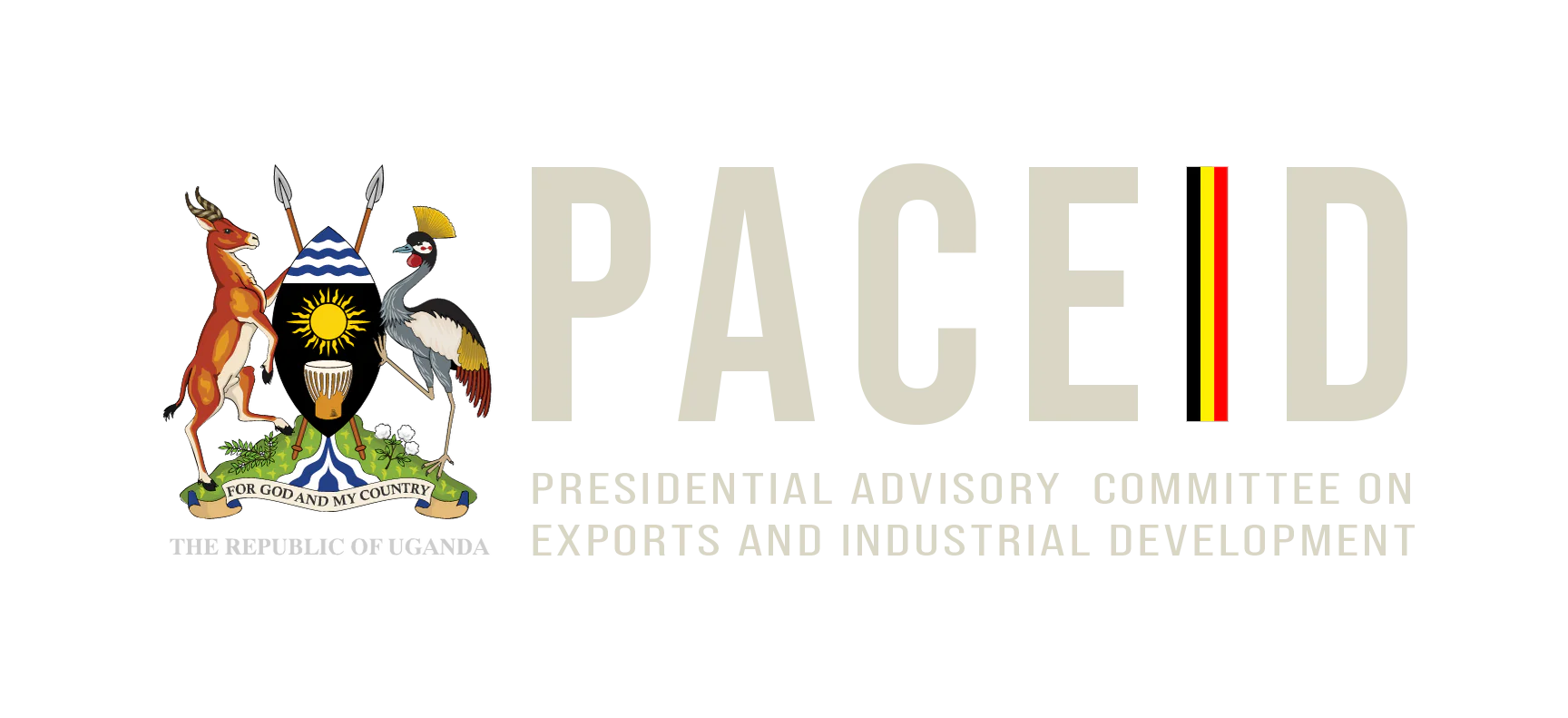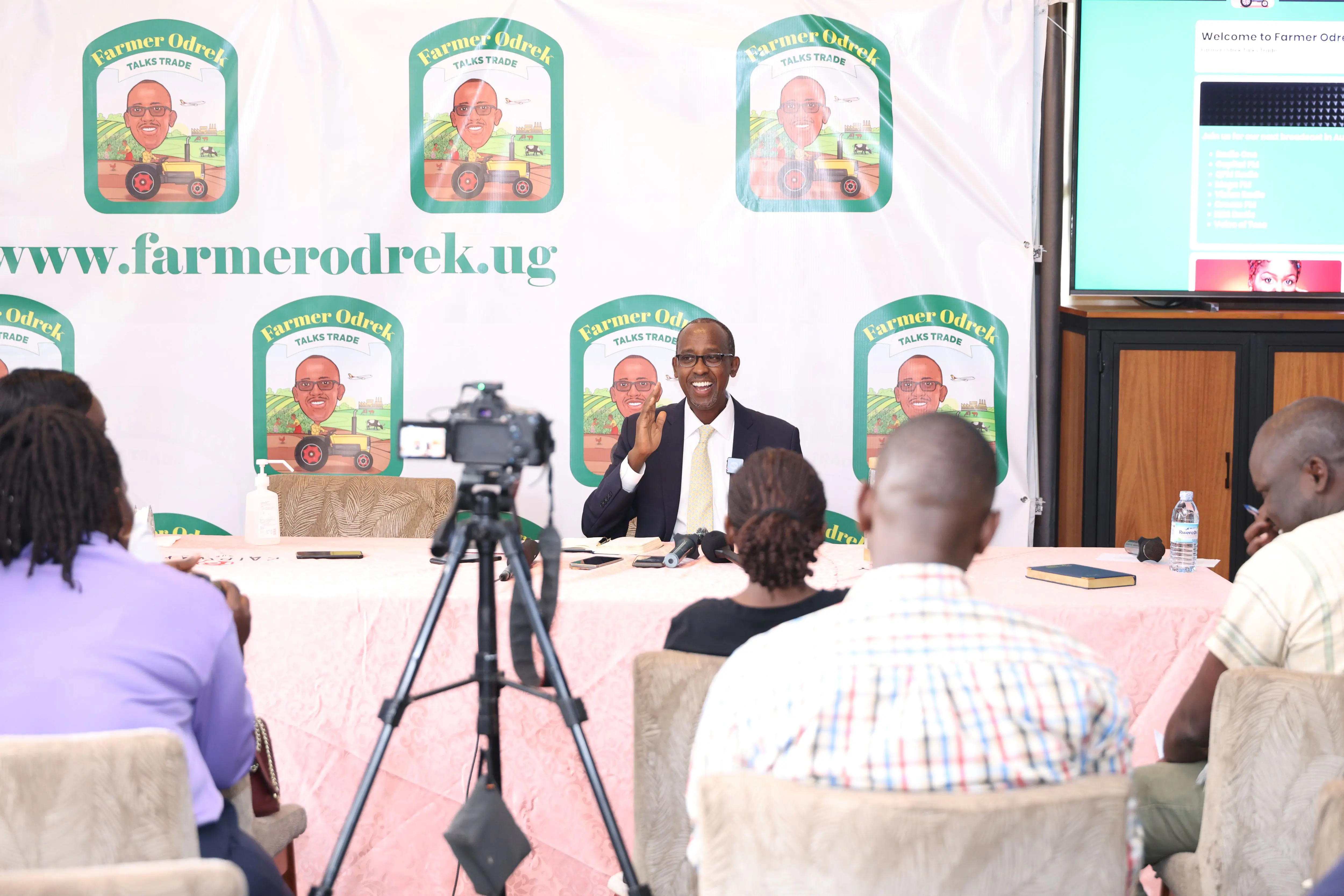In a bold move to empower Uganda’s farmers and exporters with practical, timely, and market-relevant information, Odrek Rwabwogo has today, Wednesday, August 6, 2025, announced a new radio show and podcast, titled “FARMER ODREK TALKS TRADE”. The event, at Fairway Hotel in Kampala, marks a significant step in bridging the gap between Uganda’s agriculture sector and international trade opportunities.
The show, produced by BTP Advisors in partnership with the Presidential Advisory Committee on Exports and Industrial Development (PACEID), is designed as a platform to inform, encourage, and entertain. Through real-time interviews with farmers and exporters, in-depth features on agricultural innovation, and call-in segments from listeners, the program aims to build a more export-aware and standards-compliant farming community.
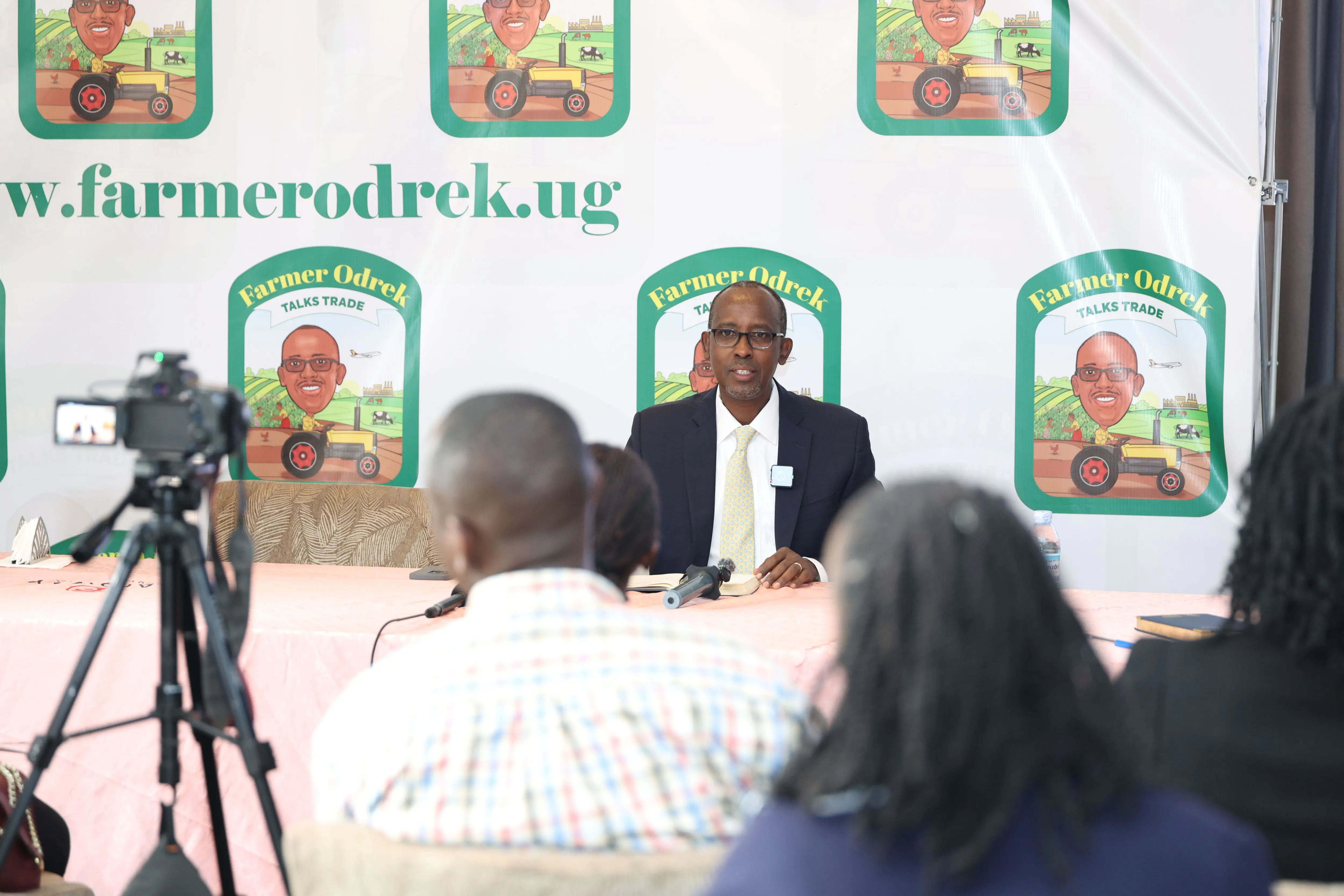
Odrek Rwabwogo explains the need for the radio show
“This show is about education and mindset change at the farm level,” Rwabwogo said during the press conference. “We at PACEID are focused on markets; we conduct trade research to avoid blind trade, have trade representation, and create promotional tools in the form of trade hubs. But none of it works if our farmers and processors don’t know where their product is headed or what the market demands. That’s why this show matters.”
Rwabwogo emphasized the need to communicate effectively and passionately about agriculture, a sector that employs the majority of Ugandans but receives limited media attention. “We talk about soft drinks and other things like gadgets with pride, so why not talk about agriculture, brewing coffee from Bulambuli, or exporting macadamia from Rukungiri with the same energy? Agriculture must become aspirational,” he urged.
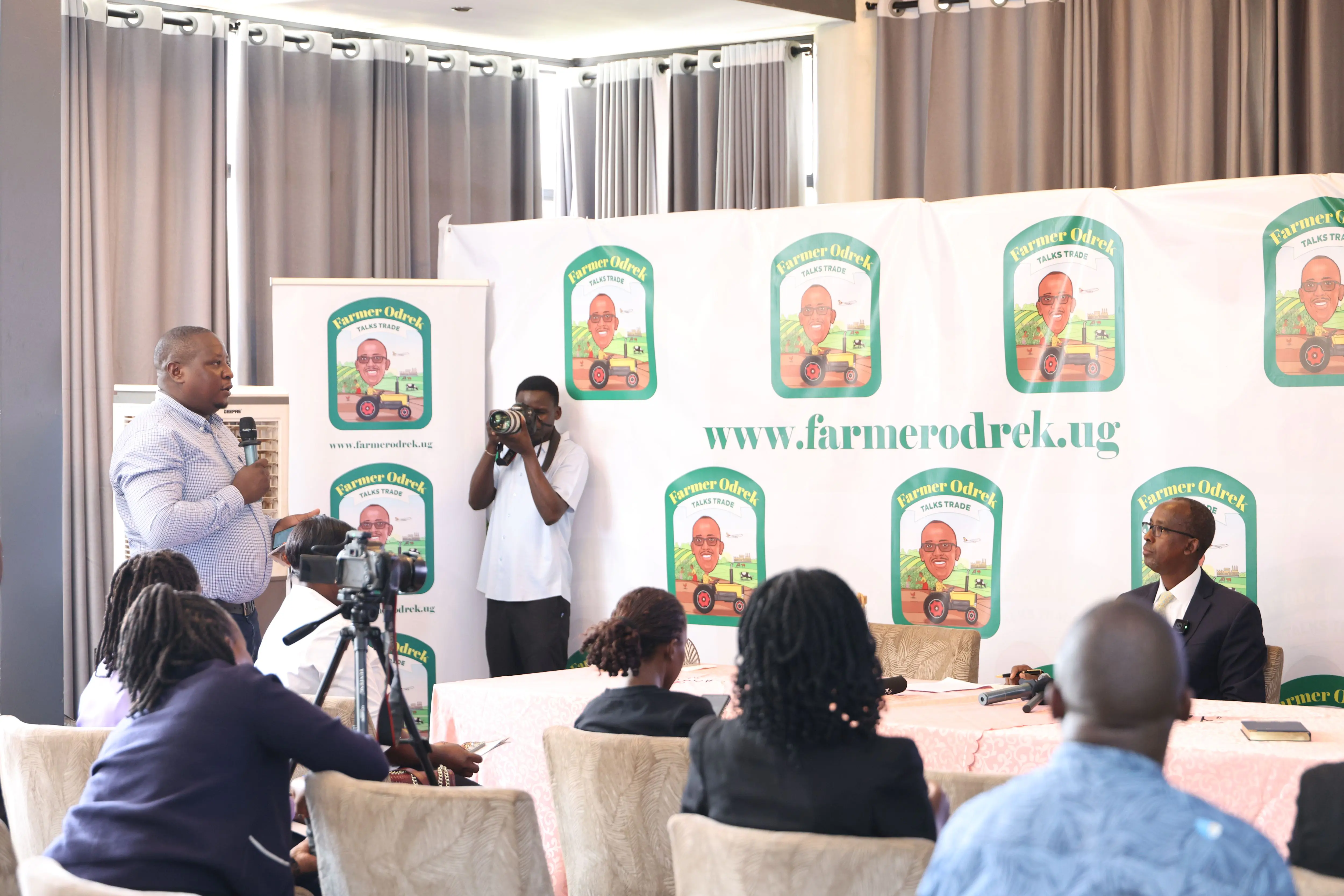
A journalist asks Odrek Rwabwogo at the press conference
The show will initially air in English, with plans to roll out local language translations to enhance participation and accessibility. Research conducted ahead of the launch confirmed that radio remains the most effective medium to reach Uganda’s rural farmers, many of whom lack reliable internet or television access but consistently engage with radio programming.
The show will also cover changes in international trade standards, offer export advisory services, and deliver updates on agricultural financing and opportunities. According to Rwabwogo, this knowledge will enable Ugandan producers to make informed decisions — from how to dry their crops to how to meet compliance standards in markets such as the EU, the Middle East, and Asia.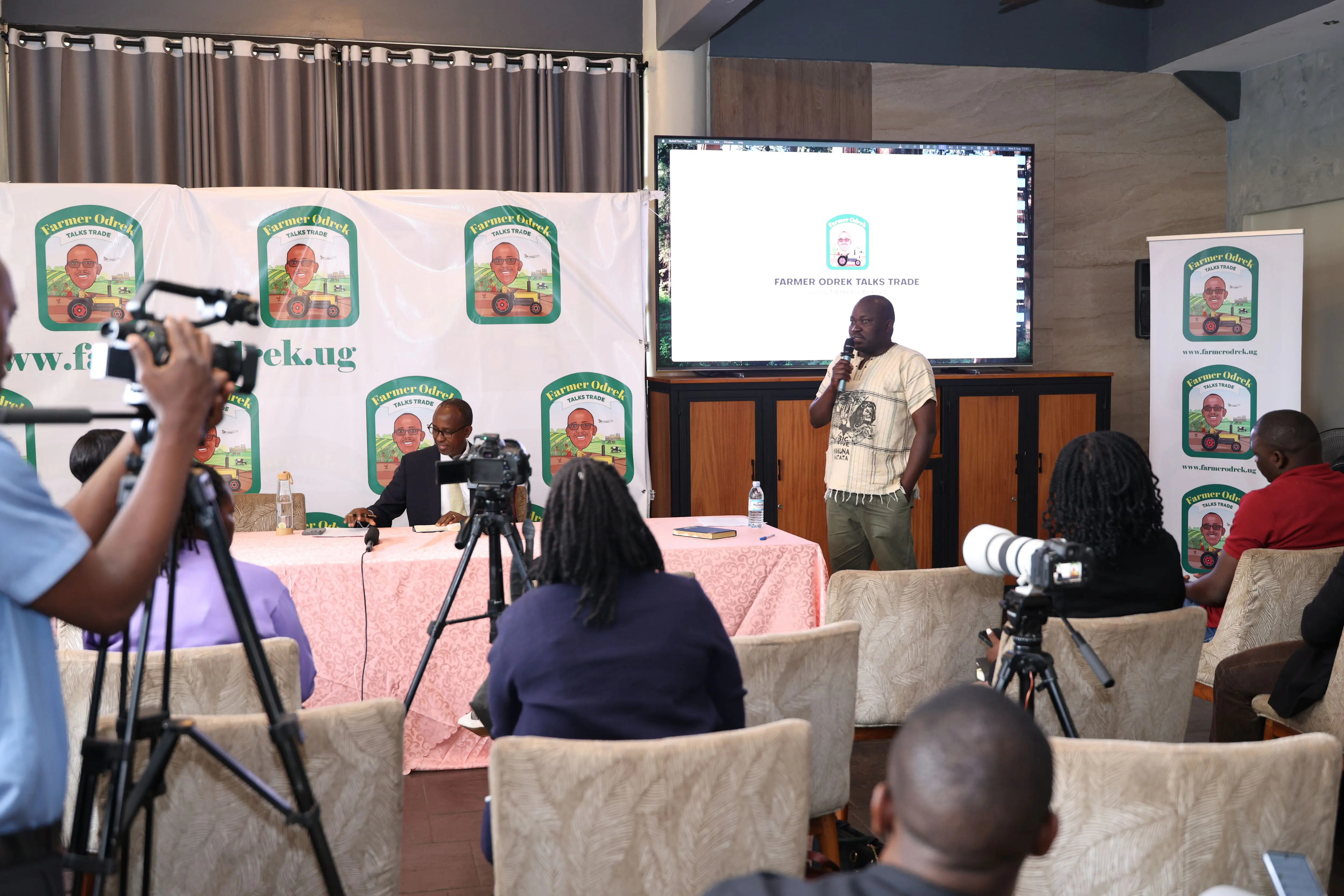
“Agriculture doesn’t get enough airtime, yet it’s the heartbeat of this country,” Rwabwogo added. “If we are going to change Uganda’s economy, we must start with the farmer, and that means changing the conversation, one radio show at a time.”
